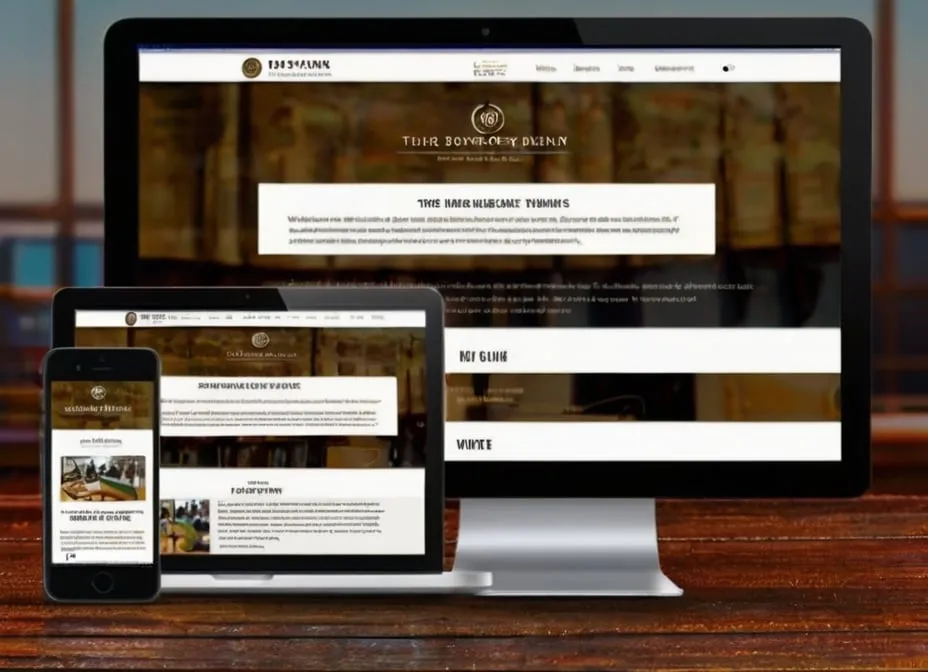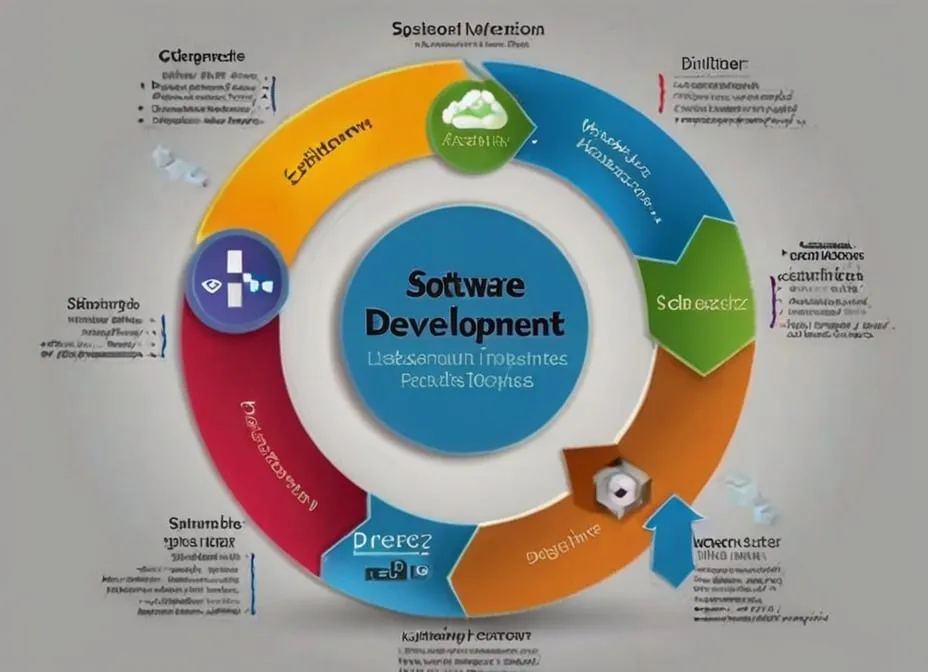Reskill and Upskill for Career Success | Stay Relevant in the Job Market

Introduction to Reskilling and Upskilling
In today's rapidly changing job market, the ability to adapt and acquire new skills is more important than ever before. With technological advancements, automation, and shifts in industry demands, the skills that were once highly sought after may become obsolete or less relevant. This is where reskilling and upskilling come into play.
What is Reskilling and Upskilling?
Reskilling refers to the process of learning entirely new skills to transition into a different job or career path. It involves acquiring a completely different set of competencies to meet the demands of a new role or industry. On the other hand, upskilling involves enhancing or expanding existing skills to stay current and relevant in your current job or field.
The Importance of Continuous Learning in Today's Job Market
The job market is constantly evolving, and the skills that were once in high demand may become outdated or less valuable. To remain competitive and employable, it's crucial to embrace a mindset of continuous learning. By actively reskilling and upskilling, individuals can future-proof their careers and adapt to the changing needs of the workforce.
How Technology and Automation are Reshaping the Workforce
Advancements in technology and automation have significantly impacted various industries, leading to the displacement of certain jobs and the creation of new roles. As automation takes over more routine tasks, there is an increasing demand for skills that complement technology, such as critical thinking, problem-solving, and creativity. Reskilling and upskilling can help individuals transition into roles that are less susceptible to automation and more aligned with the emerging job market.
The Need for Adaptability and Flexibility in Careers
Gone are the days when individuals could expect to have a single lifelong career. In today's dynamic job market, adaptability and flexibility are key. Embracing reskilling and upskilling allows individuals to pivot and explore new opportunities as industries evolve, ensuring they remain relevant and valuable in the ever-changing workforce.
The Benefits of Reskilling and Upskilling
Investing in reskilling and upskilling can unlock numerous benefits for both individuals and organizations. Here are some compelling reasons to prioritize continuous learning and skill development:
Increased Job Security and Employability
By actively reskilling and upskilling, individuals become more adaptable and versatile, making them valuable assets in the job market. Employers are often seeking candidates with a diverse set of skills and the ability to learn and grow. Continuously updating your skills can increase your job security and make you more attractive to potential employers.
Higher Earning Potential and Career Advancement Opportunities
Acquiring new skills and staying up-to-date with industry trends can open doors to higher-paying positions and career advancement opportunities. Employers are often willing to compensate individuals who possess in-demand skills and demonstrate a commitment to continuous learning.
Personal and Professional Growth
Reskilling and upskilling not only enhance your career prospects but also contribute to personal growth. Learning new skills can boost your confidence, challenge your intellect, and provide a sense of accomplishment. It can also open up new perspectives and broaden your understanding of different industries and disciplines.
Improved Confidence and Self-Esteem
As you gain new skills and knowledge, your confidence and self-esteem naturally increase. You'll feel more capable and empowered to tackle new challenges and opportunities, which can positively impact both your professional and personal life.
Staying Ahead of Industry Trends and Changes
Industries are constantly evolving, and new trends and technologies emerge regularly. By actively reskilling and upskilling, you can stay ahead of these changes and position yourself as an industry leader. This proactive approach can help you anticipate future demands and adapt accordingly, ensuring you remain relevant and competitive.
Identifying Your Skills Gap
Before embarking on a reskilling or upskilling journey, it's essential to identify your skills gap – the gap between your current skills and the skills required for your desired career path or job role. Here are some steps to help you identify your skills gap:
Self-Assessment: Identifying Your Strengths and Weaknesses
Start by conducting a self-assessment to evaluate your current skills, knowledge, and competencies. Reflect on your strengths and weaknesses, and identify areas where you excel and areas that need improvement. This self-awareness will help you determine the skills you need to focus on developing.
Researching In-Demand Skills in Your Industry
Stay up-to-date with industry trends and research the most in-demand skills in your field. Consult industry publications, attend conferences or webinars, and connect with professionals in your desired role or industry. This will give you insights into the skills that are highly valued and sought after.
Understanding Transferable Skills
While reskilling may involve learning entirely new skills, it's essential to recognize the transferable skills you already possess. Transferable skills are those that can be applied across various jobs and industries, such as communication, problem-solving, teamwork, and adaptability. Identifying your transferable skills can help you leverage your existing strengths and build upon them.
Setting Realistic Goals and Timelines
Once you've identified the skills you need to develop, set realistic goals and timelines for your reskilling or upskilling journey. Break down your goals into smaller, achievable steps and create a plan to acquire the necessary skills. Be realistic about the time and effort required, and adjust your goals as needed.
Strategies for Reskilling and Upskilling
There are various strategies and approaches you can pursue to reskill and upskill effectively. Here are some common methods to consider:
Formal Education: Degrees, Certifications, and Courses
Pursuing formal education, such as obtaining a degree, certification, or taking courses, can provide a structured learning experience and enhance your credibility in a specific field. Formal education programs often offer comprehensive curricula, access to industry experts, and hands-on training opportunities.
Online Learning Platforms and Resources
The rise of online learning platforms and resources has made it easier than ever to acquire new skills and knowledge. Platforms like Coursera, Udemy, and edX offer a wide range of courses, tutorials, and educational materials in various subjects. These online resources often provide flexibility and self-paced learning, allowing you to fit education into your busy schedule.
On-the-Job Training and Professional Development Programs
Many companies offer on-the-job training and professional development programs to help employees enhance their skills and stay up-to-date with industry changes. These programs may include workshops, mentorship opportunities, and hands-on training sessions. Participating in such programs can be an effective way to reskill or upskill while continuing to work.
Mentorship and Networking Opportunities
Seeking mentorship from experienced professionals in your desired field can provide invaluable guidance and insights. Mentors can share their knowledge, offer career advice, and help you navigate the reskilling or upskilling process. Additionally, networking with industry professionals can open doors to new opportunities and expose you to different perspectives and ideas.
Self-Directed Learning and Personal Projects
While formal education and training programs are valuable, self-directed learning and personal projects can also be powerful tools for reskilling and upskilling. Take advantage of online resources, read industry publications, attend webinars or conferences, and engage in hands-on projects to apply your newfound knowledge and skills.
Overcoming Challenges in Reskilling and Upskilling
Embarking on a reskilling or upskilling journey can be challenging, and it's essential to be prepared for potential obstacles. Here are some common challenges and strategies to overcome them:
Time Management and Balancing Responsibilities
Juggling work, personal life, and learning new skills can be demanding. Effective time management and prioritization are crucial. Set realistic goals, create a study schedule, and be disciplined in sticking to it. Consider taking advantage of flexible learning options, such as online courses or evening classes, to better fit your schedule.
Financial Considerations and Budgeting
Reskilling and upskilling can be a financial investment, especially if pursuing formal education or paying for courses. Explore funding options, such as employer-sponsored programs, grants, or student loans. Additionally, create a budget and prioritize your spending to ensure you can allocate resources towards your learning goals.
Staying Motivated and Avoiding Burnout
Learning new skills can be challenging and demanding, and it's easy to lose motivation or experience burnout. To stay motivated, set achievable milestones and celebrate small victories along the way. Additionally, seek support from friends, family, or a study group to keep you accountable and encouraged.
Dealing with Imposter Syndrome and Self-Doubt
As you embark on a new learning journey, it's common to experience imposter syndrome or self-doubt. Remember that these feelings are normal and temporary. Embrace a growth mindset, celebrate your progress, and focus on the long-term benefits of reskilling or upskilling.
Support Systems and Accountability Partners
Having a strong support system can make a significant difference in your reskilling or upskilling journey. Surround yourself with people who encourage and motivate you, and consider finding an accountability partner or joining a study group to stay on track and share experiences.
Conclusion and Next Steps
In the ever-evolving job market, reskilling and upskilling are essential for staying relevant, competitive, and future-proofing your career. By embracing a mindset of continuous learning and actively developing new skills, you can adapt to changing industry demands, seize new opportunities, and position yourself for success.
Embracing a Growth Mindset for Lifelong Learning
Developing a growth mindset is crucial for lifelong learning. Embrace the idea that skills and knowledge can be acquired and developed through dedication and effort. This mindset will enable you to approach challenges with a positive attitude and view setbacks as opportunities for growth.
Creating a Reskilling and Upskilling Plan
Based on your identified skills gap and desired career path, create a comprehensive reskilling and upskilling plan. Set specific, measurable, achievable, relevant, and time-bound (SMART) goals, and outline the strategies and resources you'll need to achieve them.
Celebrating Milestones and Accomplishments
Reskilling and upskilling can be a long and challenging journey, so it's essential to celebrate your milestones and accomplishments along the way. Recognize your progress, no matter how small, and reward yourself for your hard work and dedication.
Sharing Your Journey and Inspiring Others
Your reskilling and upskilling journey can serve as inspiration for others. Share your experiences, lessons learned, and successes with your network or online communities. Your story may motivate and encourage others to embark on their own learning journeys.
Looking Ahead: Future-Proofing Your Career
Reskilling and upskilling are not one-time events; they should be ongoing processes. As industries continue to evolve, it's crucial to stay proactive and adaptable. Regularly reassess your skills, stay informed about industry trends, and be open to new learning opportunities to future-proof your career.
FAQ Section
- What is the difference between reskilling and upskilling? Reskilling refers to learning entirely new skills to transition into a different job or career path, while upskilling involves enhancing or expanding existing skills to stay current and relevant in your current job or field.
- Why is reskilling and upskilling important in today's job market? The job market is constantly evolving, and the skills that were once in high demand may become obsolete or less valuable. Reskilling and upskilling help individuals adapt to changing industry demands, stay competitive, and future-proof their careers.
- How can I identify the skills I need to develop? Conduct a self-assessment to evaluate your strengths and weaknesses, research in-demand skills in your industry, understand your transferable skills, and set realistic goals and timelines for your reskilling or upskilling journey.
- What are some effective strategies for reskilling and upskilling? Effective strategies include formal education (degrees, certifications, courses), online learning platforms, on-the-job training and professional development programs, mentorship and networking opportunities, and self-directed learning and personal projects.
- How can I overcome challenges like time management and financial constraints? Effective time management, prioritization, and creating a study schedule can help balance responsibilities. Explore funding options like employer-sponsored programs, grants, or student loans, and create a budget to allocate resources towards your learning goals.










